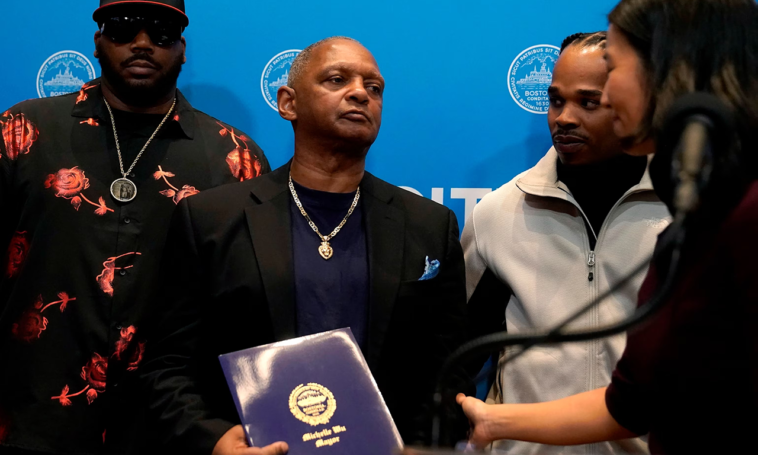On Wednesday, Boston Mayor Michelle Wu officially apologised to the families of Alan Swanson and Willie Bennett, who were falsely accused of murdering Carol Stuart in 1989. The nationally publicised case revealed police enforcement’s deep-seated racial biases and sparked a campaign of injustice against Boston’s Black people.
“I am so sorry for what you endured,” Mayor Wu told the families during a news conference. Your treatment was unjust, racist, and wrong. Our Black people and their families suffered due to this.”
Charles “Chuck” Stuart called Boston police in 1989 to report that he and his pregnant wife, Carol, had been shot during an attempted carjacking. Chuck Stuart identified the attacker as a Black guy, sparking a fierce police response, including a controversial “stop and frisk” operation in Black neighbourhoods.
Alan Swanson and Willie Bennett were falsely arrested for Stuart’s murder. The Boston Globe discovered a terrible truth: several cops knew Stuart’s first account was a lie.
“The most stunning thing to me was that we learned 33 people knew Charles Stuart committed the murder at the time he committed himself,” said Boston Globe assistant editor and columnist Adrian Walker.
Walker and a team of journalists reexamined the case in “Murder in Boston: The untold story of the Charles and Carol Stuart shooting.” The series highlights racial profiling and its terrible effects on innocent lives.
Mayor Wu’s apologies acknowledged the “systemic campaign targeting Black men” by officials who believed a lie, sustaining racial biases and injustices. The mayor and Boston Police Commissioner Michael Cox apologised for “poor investigation, overzealous behaviour, and more likely, unconstitutional behaviour.”
Mayor Wu gave the Swanson and Bennett families an official apology letter during the press conference as a symbolic gesture. Joey Bennett, accepting the apology for his uncle, said, “The world can be informed of what transpired 34 years ago and begin the process of healing our trauma.”
In an era where racial bias and police conduct are hot topics, this apology is a crucial step towards acknowledging previous injustices and starting a conversation about how to prevent them.
Mayor Michelle Wu’s emotional apology is a milestone in addressing historical racial injustices. The 1989 murder of Carol Stuart and the false arrests of Alan Swanson and Willie Bennett exposed criminal justice system racism. Boston became a hub for racial profiling and systematic bias discussions after Chuck Stuart’s false charges.
The Boston Globe investigation and HBO documentary series “Murder in Boston: Roots, Rampage & Reckoning” highlight the significance of reexamining historical cases to reveal hidden realities and illuminate racial profiling. Adrian Walker and his team of journalists methodically investigated the Stuart case, uncovering Chuck Stuart’s dishonesty and the number of people damaged by racial conflict.
Mayor Wu and Police Commissioner Cox apologised for Chuck Stuart’s lies’ harm to innocent Black males. The racist “stop and frisk” programme hurt Swanson, Bennett, and their families. Mayor Wu apologises to Boston’s Black population for their collective pain and calls for healing and reconciliation.
The HBO documentary, “Murder in Boston: Roots, Rampage & Reckoning,” examines the Stuart case and Boston’s bigotry. The series analyses how racial profiling during the search for Stuart’s killer affected the Black community. The documentary illuminates the nuances of racial injustice by highlighting these stories.
As the city confronts its past, the apology sparks a larger discussion about police misconduct, racial bias, and institutional change. Mayor Wu creates a more transparent and accountable Boston criminal justice system by admitting past failures.
This apology opens the door to dialogue, education, and policy changes to prevent future injustices. That unfairly accused people like Alan Swanson and Willie Bennett persevere shows the significance of finding truth, righting wrongs, and creating a more just and equal future.



2 Comments
Leave a Reply2 Pings & Trackbacks
Pingback:Rays SS Wander Franco arrested in Dominican Republic
Pingback:Boston reparations task force member says examination of slavery
Join the Community and Be a Part of the Conversation
You must be logged in or registered to post a comment.